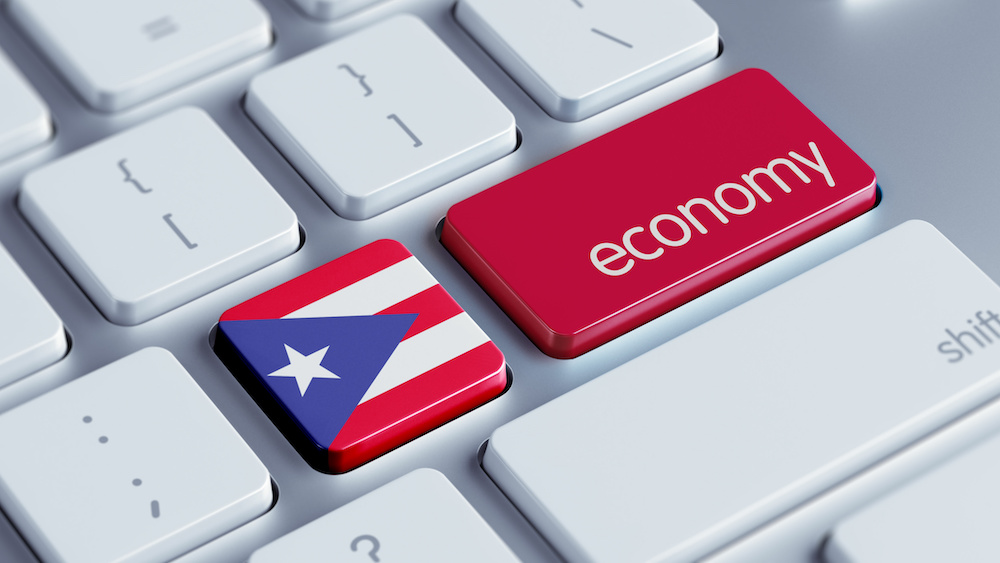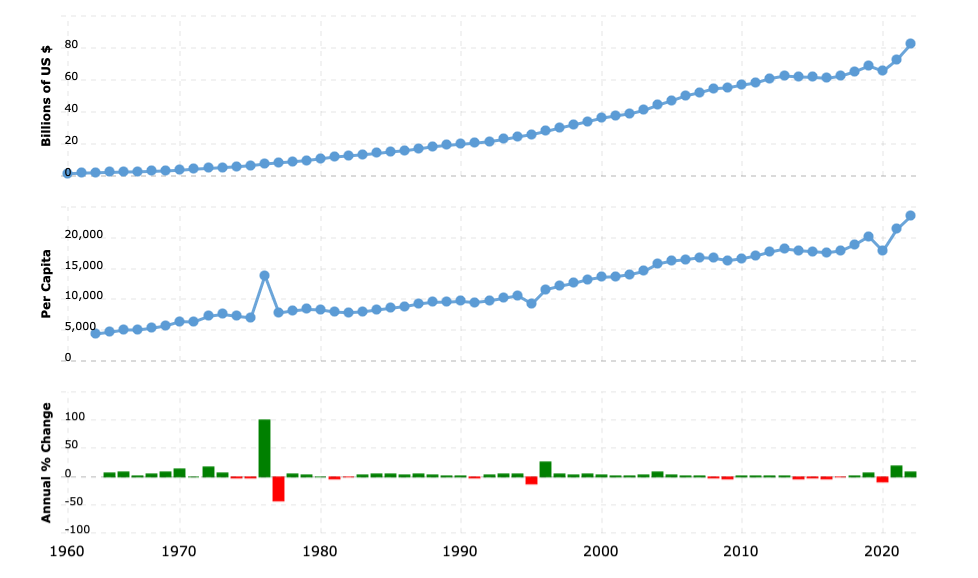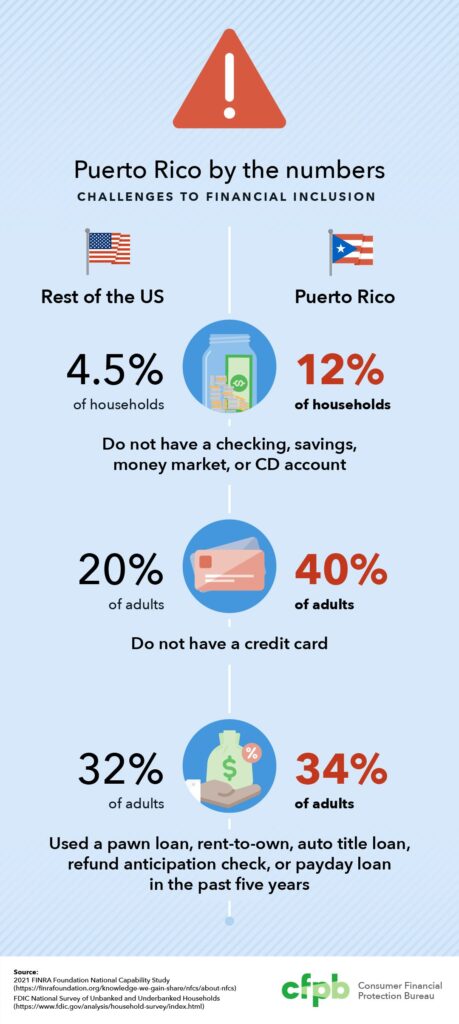Puerto Rico is seeing significant economic recovery, while still facing much higher rates of poverty than any state. What’s going on with Puerto Rico’s consumers?
Statista, using data from Statista Market Insights , World Bank , OECD , Eurostat , World Bank PovcalNet , and the World Inequality Database, reports an increase in household income since the low point in 2020, and estimates a steady increase till the end of the decade. They also anticipate a steady increase in disposable income and in consumer spending. This is good news for households and businesses in Puerto Rico.
Macrotrends concurs on the question of consumer spending, showing a dip in 2020 and a sharper rise thereafter compared with the previous trajectory.
With a population that is both shrinking and aging, Puerto Rico can celebrate the spending increase, which would not be the anticipated result of the population changes.
How well-off are Puerto Ricans?
However, these statistics don’t tell the full story.
The Consumer Financial Protection Bureau reports that Puerto Ricans are much less likely to have a bank account or credit card than people living in the states, and more likely to have used expensive forms of credit like payday loans. Puerto Rico has fewer banks; many national financial organizations do not operate in Puerto Rico at all. These factors make residents of Puerto Rico more vulnerable to financial emergencies.
Add to this the fact that about 42% of people living in Puerto Rico are living in poverty, and it is clear that the increases in income and expenditure are not clear signs of financial stability for the population of Puerto Rico.
Income inequality
CentroPR reports that income inequality is higher in Puerto Rico than in any other U.S. jurisdiction. Labor force participation is extremely low in Puerto Rico (45.1%) and a lack of employment opportunities has been a primary reason for leaving the Island for a state since the 20th century. “While many argue that the United States has an untenable distribution of wealth with only 10% of households earning over $200,000 a year, in Puerto Rico only 1.4% of households make over $200,000 a year,” the Centro authors explain. “Meanwhile, poverty is widespread: 25% live with incomes of $10,000 a year or less (as compared to 6% in the general US).”
Amelia Ward shared maps showing the regional variation in income levels, ranging from 21% poverty rate in Guaynabo (comparable to the poorest states) to 64% in Maricao. Yet San Juan, with the second-highest per capita income, has a 41% poverty rate. Geography doesn’t tell the whole story.
Puerto Rico has had the nation’s highest level of income inequality for many decades. But the new wealthy residents drawn in by Act 60, which offers astounding tax breaks to people willing to relocate to the Island, are part of the equation. According to Fortune, about 250 people with net worth of $1 million or more (including some billionaires) have moved from the states to Puerto Rico since 2012. In exchange for extensive tax loopholes, these individuals are required to buy property, provide at least one job, and donate a small percentage of their income to local charities.
Some reports find that the charities are benefitting only the beneficiaries of Act 60. The purchases of property are leading to large proportions of rental property and, some say, pricing local people out of the housing market. The jobs being provided are in question by the IRS.
Ordinary people deal with excessively high energy costs, 85% imported food, and the highest sales tax in the country. Yet real estate listings in Puerto Rico include a $49 million dollar penthouse. Whether the incomers are helping the local economy or not is a matter of controversy, but the level of income inequality is certainly part of why the plight of Puerto Rico’s consumers doesn’t always show up in the statistics.
Like so many of the other problems facing Puerto Rico, consumer weakness is the result of the territorial status of the Island. Right now, both the House and the Senate are considering the Puerto Rico Status Act, which will end the colonial territory status and provide Puerto Rico with a permanent political status at last. Contact your legislators now and ask them to take a stand on the right side of history.










No responses yet